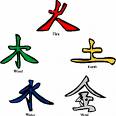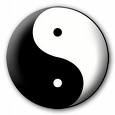Traditional Acupuncture - Natural Healing
Acupuncture is a system of natural healing which has been used successfully by a large section of the world's population for upwards of 3000 years. Although its origins are ancient, it is subject to continuous review and is as beneficial today as it was to the early oriental cultures. It is a non-invasive system of medicine which can do no harm; indeed, it frequently improves additional symptoms outside the main complaint, and increases the general feeling of wellbeing.
In the West, acupuncture has received a great deal of publicity for its ability to help with addictions (tobacco, alcohol, drugs) and for its power in the relief of pain. Many doctors have taken brief courses in symptomatic acupuncture in order to use these skills in Pain Relief Clinics. Although this has increased public awareness, it suggests that these are the only areas in which acupuncture is of benefit. Yet Traditional Acupuncture is used to treat a wide range of illnesses, including those for which one would see a GP, and those for which Western medicine has few answers, such as ME, eczema, stress, insomnia and depression.
What does it do?
Acupuncture assists the body in its natural healing process and enables it to heal itself in body, mind and spirit, as far as nature will allow. The process of healing takes place within our bodies all the time, and for the most part we are unaware; cuts heal, germs are rejected, temperatures rise and fall, infections come and go, as our bodies work endlessly to keep us well.
There are times however, when this natural process falters and we feel unwell. Chinese medicine is based on the belief that the symptoms which result are not the disease itself and that there is an underlying energy imbalance. This sends out distress signals which we label with names such as asthma, heartburn, high blood pressure, or anxiety state.
By accurately diagnosing and treating the underlying cause of disease, acupuncture heals the body from within and makes it possible for the symptoms of which we complain to gradually fade away. For this reason, acupuncture is a gentle recovery process which takes place from the inside to the outside and while some patients find their symptoms relieved almost from the first treatment, many others are aware that they feel generally better before the specific problem improves. Hence the frequent comment: "I'm feeling better in myself" which refers to such things as increased vitality, improved sleep, balanced appetite, greater confidence and enjoyment of life.
What can Acupuncture help?
Traditionally acupuncture has been used to treat the entire spectrum of illness; physical and psychological, acute and chronic. Many people come for help with specific symptoms or conditions and others come because they are feeling generally unwell; perhaps the pressures of modern living are building up, or they are suffering from the effects of mental or emotional conflict. Others are seeking a preventative form of treatment, which helps maintain their health thereby reducing the onset of symptoms.
What happens when you come for treatment?
The initial consultation takes about an hour and a half and builds up a comprehensive picture of you as a whole person. You will be asked about your main complaint, other complaints, your personal and family medical history, appetite, sleep and how the various systems in your body are functioning. You will also have plenty of opportunity to talk about any issues or concerns that are troubling.
You can be assured that everything that takes place in the treatment room is entirely confidential and non judgemental. Our only aim in taking such a detailed history is to understand fully the problems and symptoms you are experiencing in order to best help you return to health.
Talking is followed by a physical examination which includes a blood pressure check and an assessment of overall temperature distribution. Specific attention will be paid to the pulses on both wrists as these are a major diagnostic tool and are used as a measure of progress in treatment and as a means of planning such treatment.
Subsequent appointments take ¾-1hr and divide into an opportunity to talk and discuss your progress, and treatment, which is based on the insertion of very fine sterile, disposable needles into acupuncture points.
Many patients are concerned that treatment will be painful or that the needles used will be similar to those used to give injections in Western medicine. This is far from the case; the needles are flexible and about the width of two fine head hairs. In most cases there is a very slight “prick” as the needle enters the skin, sometimes followed by a dull ache as it reaches the acupuncture point. The sensation is quite acceptable and only lasts 1-2 seconds.
How will you respond and how often will treatment be given?
Every individual is unique and therefore the response varies from person to person. Some patients notice a change in their overall health and well being and then an improvement in their main complaint whereas others notice a marked improvement in their symptoms straight away. Some feel revitalised, some feel relaxed, whilst others feel changes which are more subtle and noticed in retrospect. The length of time the condition has been present and the severity of the disease are often factors in the speed of improvement.
Generally you will come for treatment weekly until your condition improves and then gradually space your appointments further apart until there is only a need for a three monthly check up to maintain your progress. At this stage your treatment will have moved into the preventative role for which acupuncture is also used.
Who comes for treatment?
A wide variety of people come for treatment, ranging from children to the elderly. Many people select acupuncture as their first choice, while others seek help when other forms of treatment have been unsuccessful or require a level of medication with which they are not happy. Increasingly, people are wanting to take responsibility for their own health, to make their own choices in health care, and to take measures to maintain their well being before symptoms develop or increase.





